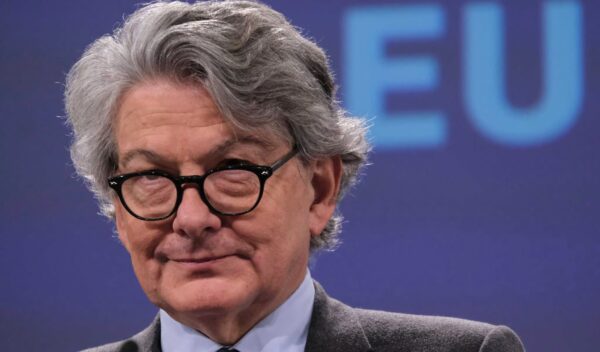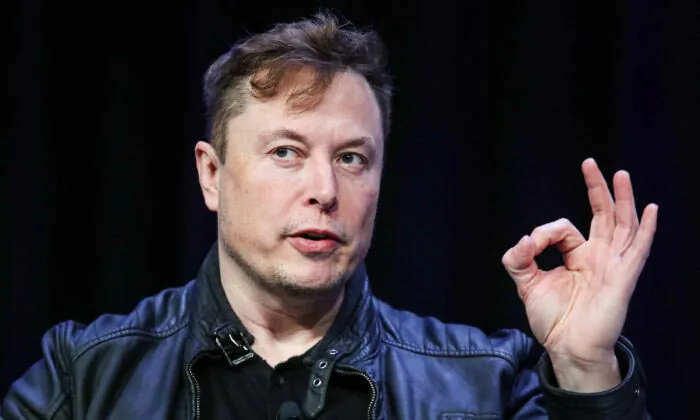EU Issues Warning After Elon Musk Pulls Twitter Out of Anti-‘Disinformation’ Agreement
Senior European Union officials were furious over the weekend after Twitter owner Elon Musk pulled the social media platform out of the bloc’s “Code of Practice,” which critics say is tantamount to a censorship regime.
The EU’s internal market commissioner, Thierry Breton, wrote that Twitter left the bloc’s Code of Practice, after reports claimed the platform would do so. Breton warned that Twitter would face some legal liabilities.
“Twitter leaves EU voluntary Code of Practice against disinformation. But obligations remain. You can run, but you can’t hide,” Breton wrote. “Beyond voluntary commitments, fighting disinformation will be legal obligation under #DSA as of August 25. Our teams will be ready for enforcement.”
An EU official also told Euractiv that the bloc is “waiting for this,” and “it was purely a matter of time” before reports surfaced that Musk would withdraw.
The rules known as the Digital Services Act (DSA) require companies to do risk management, conduct external and independent auditing, share data with authorities and researchers, and adopt a code of conduct by August.
The 19 companies that are subject to the rules include Alphabet’s Google Maps, Google Play, Google Search, Google Shopping, YouTube, Meta’s Facebook and Instagram, Amazon’s Marketplace, Apple’s App Store, and Twitter. The others are Microsoft’s two units LinkedIn and Bing, booking.com, Pinterest, Snap Inc’s Snapchat, TikTok, Wikipedia, Zalando, and Alibaba’s AliExpress.
“We consider these 19 online platforms and search engines have become systematically relevant and have special responsibilities to make the internet safer,” Breton told reporters earlier this year, adding that those companies would have to target so-called disinformation.
Breton said he was checking to see whether another four to five companies fall under the DSA, with a decision expected in the next few weeks. Breton singled out Facebook’s content moderation system for criticism because of its role in building opinions on key issues.

Facebook’s parent company said it supports the EU’s new Digital Services Act. “We take significant steps to combat the spread of harmful content on Facebook and Instagram across the EU,” Meta saidseveral weeks ago. “While we do this all year round, we recognize it’s particularly important during elections and times of crisis, such as the ongoing war in Ukraine.”
Criticism
Jacob Mchangama, a Danish historian, sounded the alarm about the Digital Services Act in late 2022, writing in an opinion article that the plan would be a case of the “cure” being “worse than the disease.”
“But when it comes to regulating speech, good intentions do not necessarily result in desirable outcomes,” he wrote for the Los Angeles Times. “In fact, there are strong reasons to believe that the law is a cure worse than the disease, likely to result in serious collateral damage to free expression across the EU and anywhere else legislators try to emulate it.”
Although “removing illegal content sounds innocent enough,” he wrote that “it’s not.” That term—”illegal content”—is “defined very differently across Europe,” he said. “In France, protesters have been fined for depicting President Macron as Hitler, and illegal hate speech may encompass offensive humor” while “Austria and Finland criminalize blasphemy.”
An Epoch Times email that was sent to Twitter for comment was returned with an automated response that included a poop emoji. Musk announced earlier this year that the emoji would be sent automatically when journalists sent requests for comment.
Reuters and The Associated Press contributed to this report.






Geen opmerkingen:
Een reactie posten